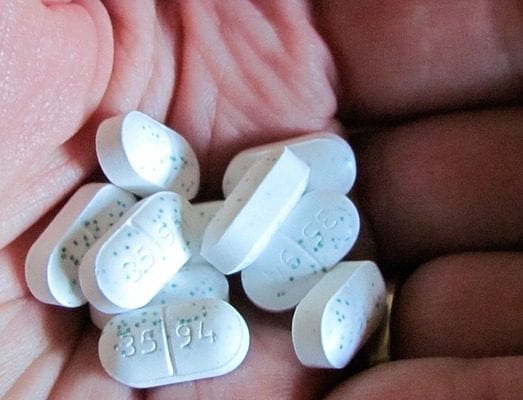
News
Congress Cracking Down on Foreign Packages Containing Opioids
As the nation’s opioid epidemic climbs, lawmakers are looking to new ways of stopping the flow of powerful opioids like fentanyl into the country. As opioid-related overdose deaths rates began to soar, doctors and pill mills were being shut down across the country, leaving addicts to search for new ways to get their fix. People are now ordering opioids from foreign suppliers through the dark web, directly to their doorstep without a prescription. Congress is taking steps to force the USPS to make it more difficult for people to receive narcotics this way, by beefing up security measures and inspection of packages.
 While there are many crooked doctors in the United States who write fraudulent prescriptions for more money, the internet allows for easy access to many drugs. Many opioid packages come from overseas, and with over 1.3 million packages entering the United States every day, thorough inspection is extremely difficult, according to the Department of Homeland Security. There are nine international mail facilities handling incoming packages from foreign countries, one of the largest being at Chicago’s O’Hare International Airport. U.S. Customs and Border Protection Chicago port director Matthew Davies told NPR that his officers are working long hours to check for packages containing narcotics, but with the sheer volume of parcels, it is exceedingly difficult to find them.
While there are many crooked doctors in the United States who write fraudulent prescriptions for more money, the internet allows for easy access to many drugs. Many opioid packages come from overseas, and with over 1.3 million packages entering the United States every day, thorough inspection is extremely difficult, according to the Department of Homeland Security. There are nine international mail facilities handling incoming packages from foreign countries, one of the largest being at Chicago’s O’Hare International Airport. U.S. Customs and Border Protection Chicago port director Matthew Davies told NPR that his officers are working long hours to check for packages containing narcotics, but with the sheer volume of parcels, it is exceedingly difficult to find them.
Since the majority of these packages contain no electronic data included with the shipment, it is making the use of advanced, automated detection practically impossible. Earlier this year, a report was published by Homeland Security that detailed how easy it is to purchase opioids online. Senate aides attempted to purchase the powerful synthetic opioid fentanyl online to to get a better understanding of the its accessibility. They simply searched “fentanyl for sale” and contacted six online sellers from foreign countries. Through a series of exchanged emails, they were given information on how they could purchase fentanyl and other new synthetic opioid compounds that have had little to no evidence of testing on humans.
Congressmen like Republican Sen. Rob Portman of Ohio, a state hit particularly hard by the opioid epidemic, said during a Senate floor speech that fentanyl “is coming primarily through the U.S. mail system from primarily one country — China.” He stated said there are laboratories in China “where some evil scientist is mixing this deadly brew and then sending it through the U.S. mail into our communities.” Mexico and Canada are also manufacturing and shipping opioids like fentanyl to the United States.
Portman is a sponsor of the STOP Act, which would require international mailers to provide crucial data like their names, addresses, and package contents at the post office, which would then be entered into a database that would be utilized when the package reaches the U.S.. This would be helpful for customs in screening packages to ensure no illegal narcotics are contained within its contents.
While the STOP Act has been endorsed by the White House opioid commission, it has not gained the backing of the United States Postal Service. Collecting electric data from other countries would stop force the USPS to refuse to accept mail from many countries. The blocking of incoming mail into the U.S. could also lead to outgoing mail being blocked by other countries. Additionally, complying with the STOP Act would require USPS to increase their costs significantly. A statement provided by the USPS says they are “working aggressively to stem the flow of illegal drugs” but states that the STOP Act won’t be workable with their current package scanning.





0 comments